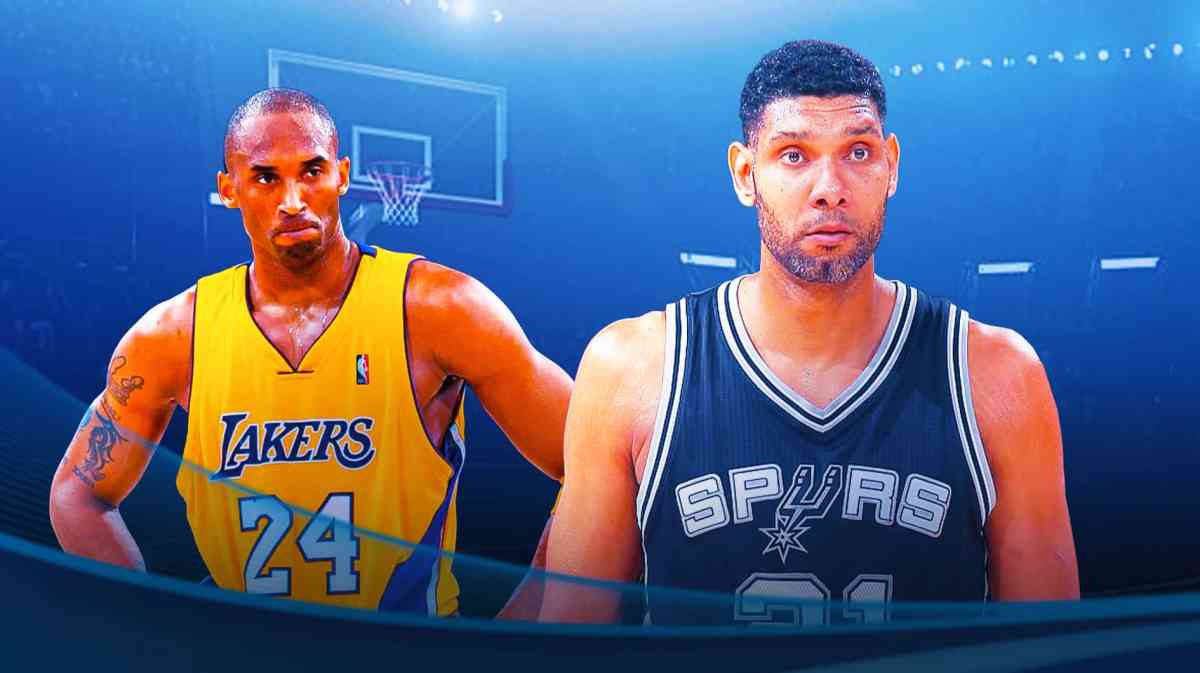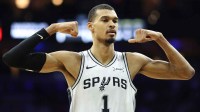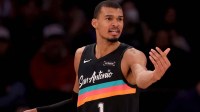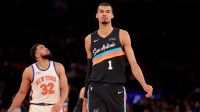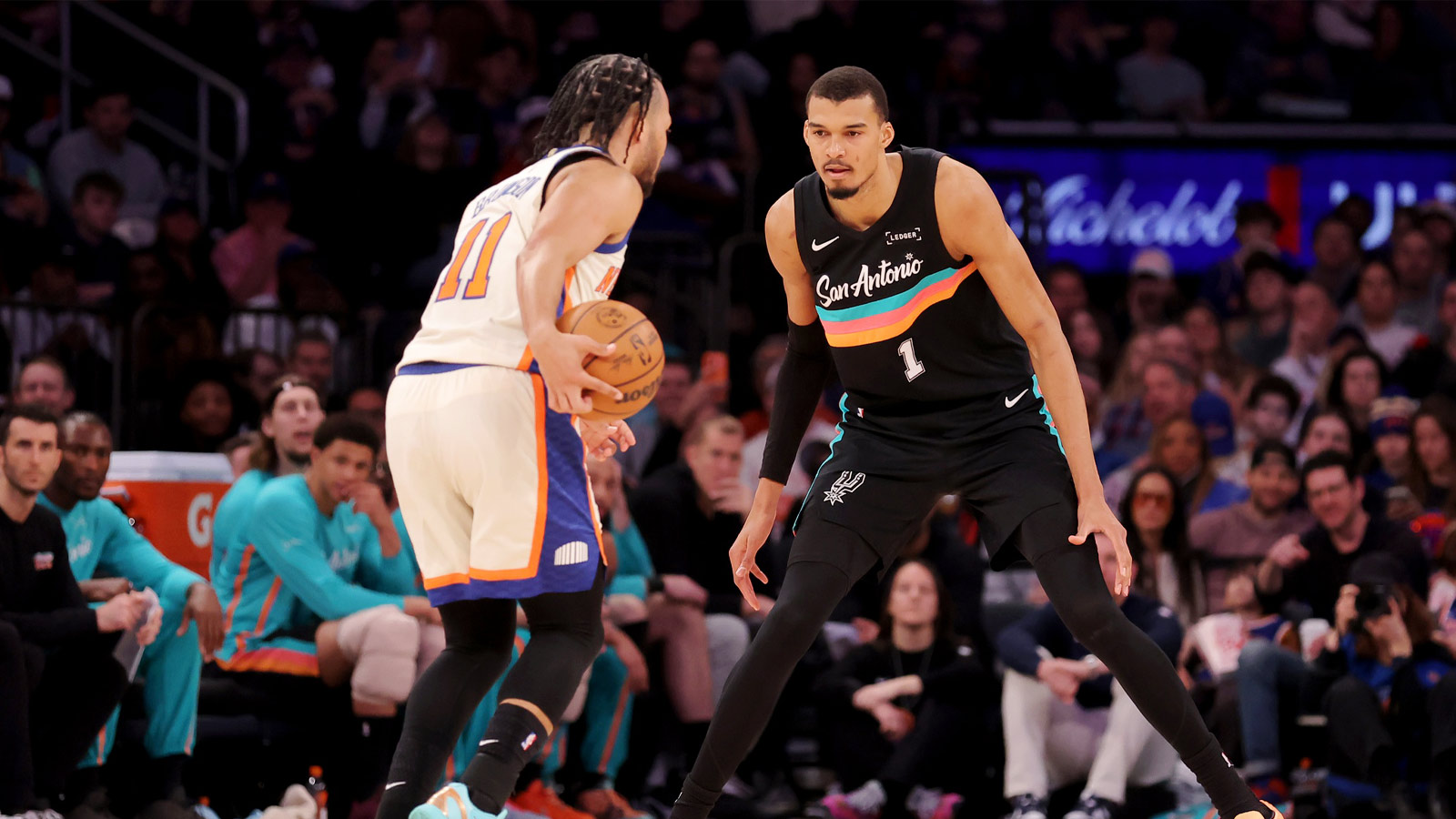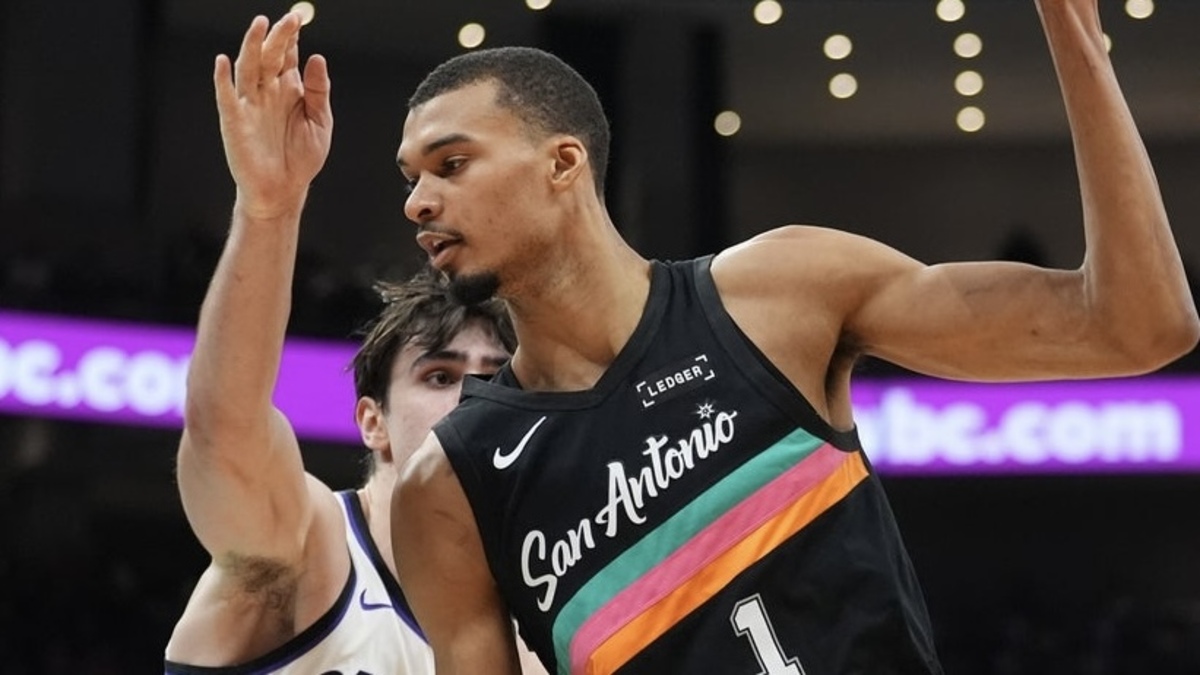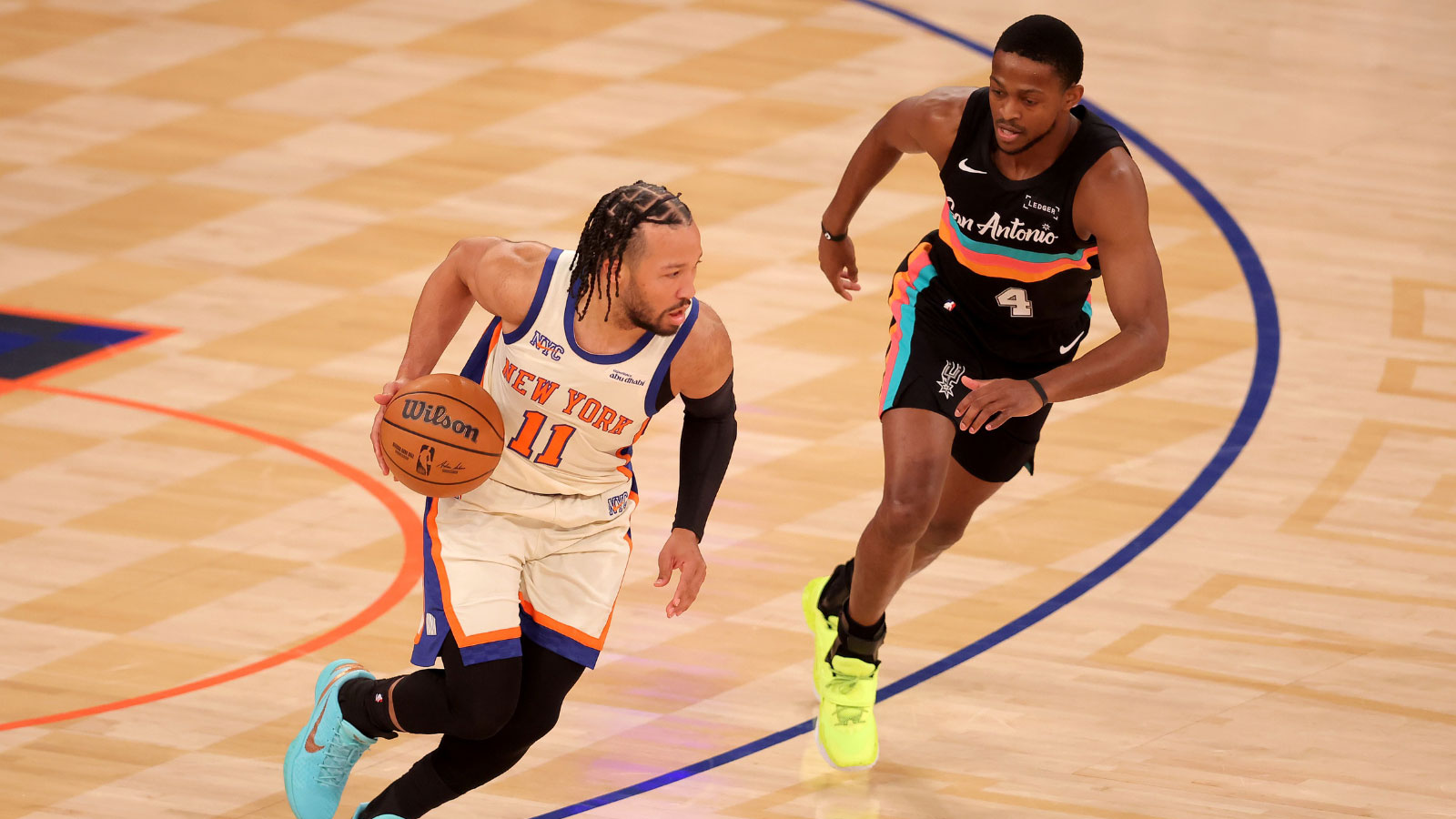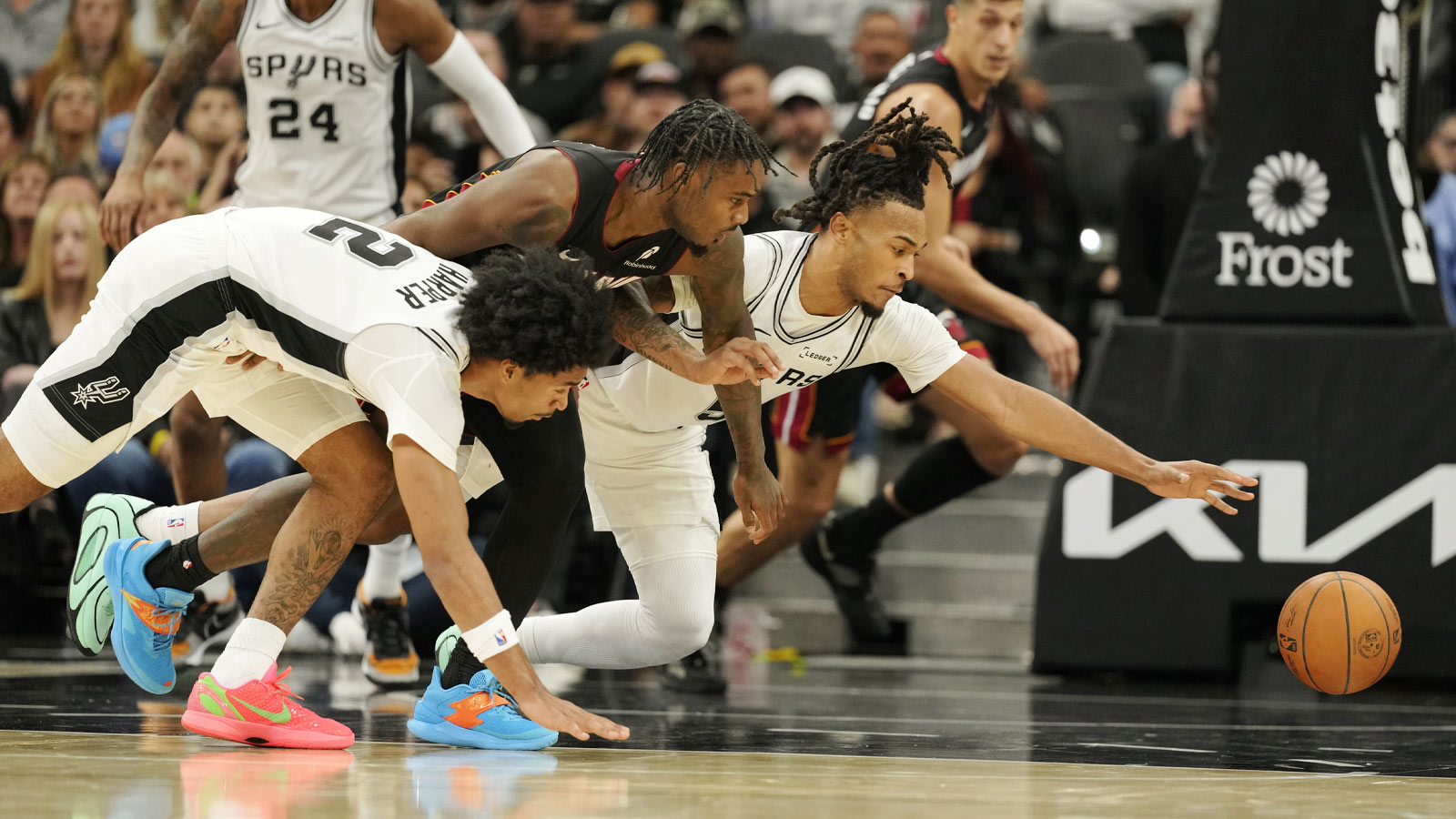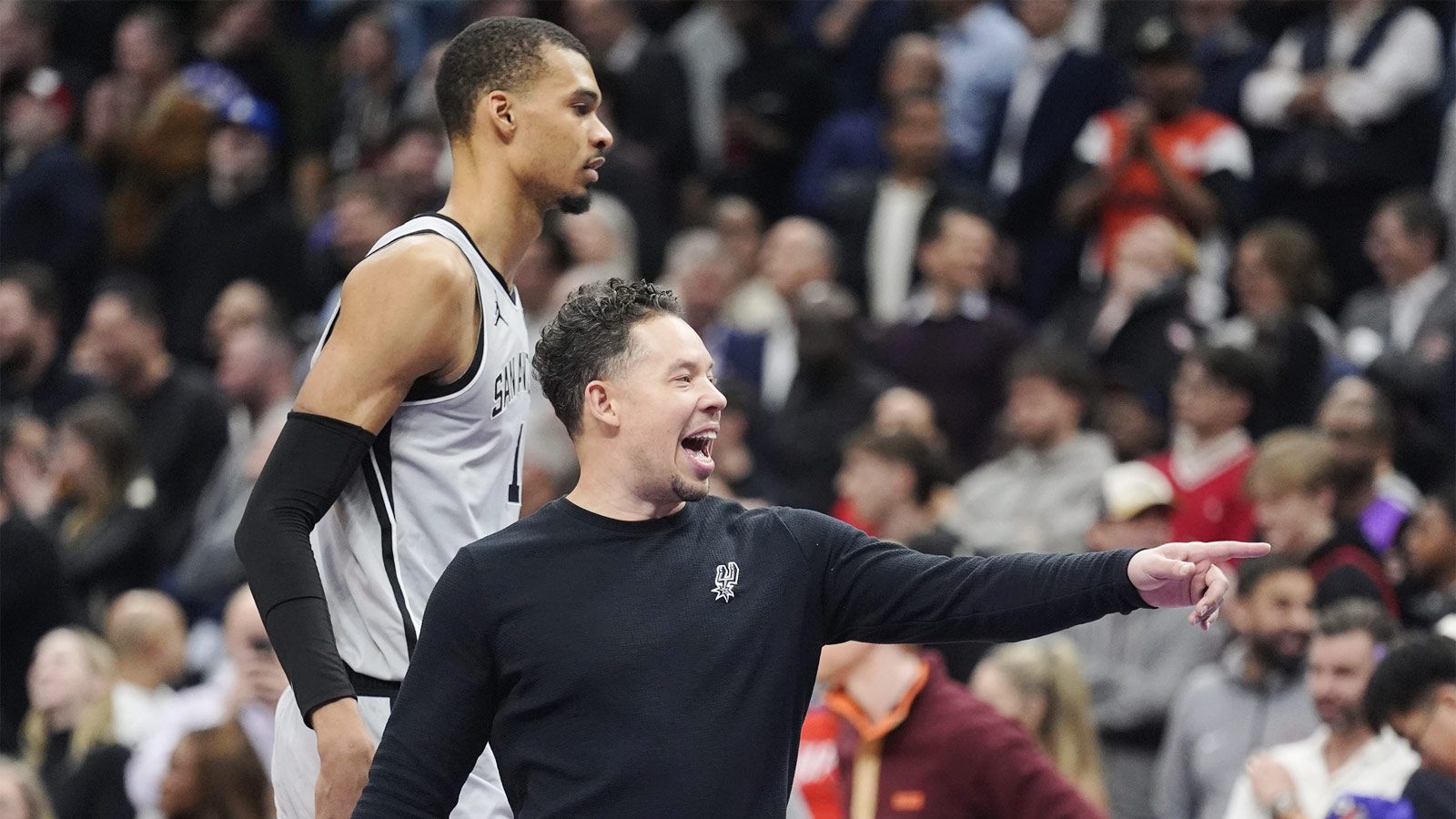Veteran NBA reporter Zach Lowe recently grabbed headlines by stating he thought Tim Duncan ranked ahead of the late Kobe Bryant among the NBA's best ever players. It's a statement with which some, if not many, disagree. An often overlooked reality, though, suggest that the San Antonio Spurs Hall-of-Famer should get the nod over the Los Angeles Lakers legend.
Before we get into the reason Duncan was superior, Bryant's advantages should be addressed. He's perhaps the best clutch player the league has seen outside of Michael Jordan. Additionally, the “Mamba' scored 7,500+ more career points, including playoffs, despite playing fewer games than Duncan.
There are other areas in which the Lakers great tops the Spurs legendary power forward, but none matter more than Duncan-Bryant playoff head-to-head specifics. Though one can easily make the case that Duncan's Spurs never had more talent than Bryant's Lakers in any year during their six postseason match-ups, TD won a couple of them and cemented a legend in the process.
An aside into Tim Duncan's historical standing and a shout out to two Team USA swimmers? Sure! New Lowe Post podcast:
Spotify https://t.co/2brbTPI1Pq
Apple: https://t.co/Uggsgh1fYU https://t.co/hRC6eDV4I3
— Zach Lowe (@ZachLowe_NBA) July 24, 2024
Why Tim Duncan outranks Kobe Bryant
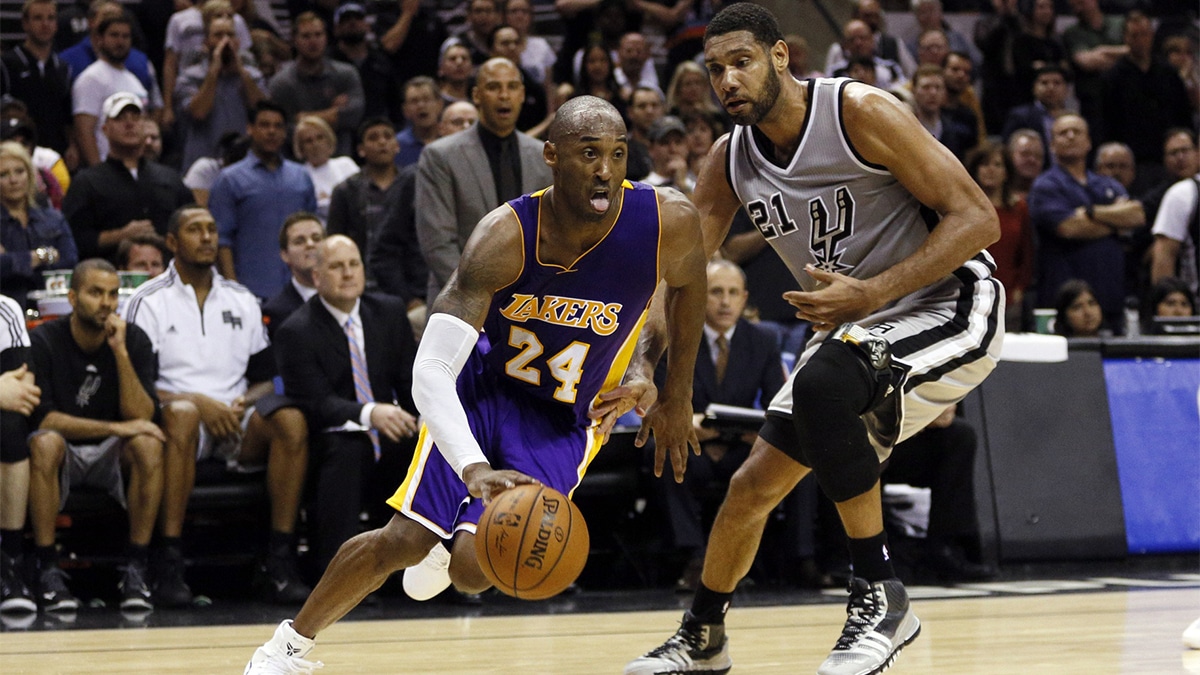
From 1999 to 2003, Kobe Bryant lost only two playoff series. Both came at the hands of Tim Duncan.
And how about this?
Pair Duncan with a prime Shaquille O'Neal and put an aging David Robinson next to Bryant. Who wins those matchups?
Four of their playoff head-to-heads came when both O'Neal and Robinson were still on their respective teams. Their presence in this conversation can't be overlooked.
The greatest measure of a legacy is success and its context. It's why Jordan is revered as the greatest NBA player, maybe greatest athlete, ever. So dominant he was, especially in huge moments, in capturing two different “three-peats;” it's why he's revered despite the fact that others have either won more titles or scored more points.
So dominant was Tim Duncan, that the greatest teammate through his five championships was Robinson, a Hall-of-Famer who, by most measures, is much closer to 25 than 10 when ranking the game's best players.
More telling, th0ugh, are specifics.
When Duncan led the Spurs to their first title in 1999, the 32-year-old Robinson, because of age and injuries, was no longer the David Robinson we see to this day on social media highlight reels. In a Western Conference Semifinals sweep of Bryant, O'Neal, and the Lakers, Duncan outscored the “Mamba” in three of the series' four contests and put in the game-winner the only night he didn't.
In 2003, Robinson was 36 and in his last season. The other two members of the franchise's famed “Big 3” were a rookie Manu Ginobili who averaged 9.4 points per game that postseason and a 21-year-old Tony Parker who struggled to the point of sitting on the bench in the fourth quarters of the Finals. Duncan led that team to a championship – again knocking off Bryant and O'Neal in a second-round matchup. Duncan erupted for a monstrous 37-point, 16-rebound Game 6 performance at the Staples Center to end the Lakers three-peat.
In fairness, the Lakers embarrassed the Spurs in 2001 and Bryant was again better than Duncan in 2004 after the Lakers added Karl Malone and Gary Payton and the Spurs lost Robinson. Though Duncan outscored Bryant in four of their five playoff games in 2002, LA also won that series as they did in the 2008 conference finals, post O'Neal, when Bryant narrowly outscored Duncan three games to two.
Overall, Tim Duncan won one more NBA MVP and one more Finals MVP than Bryant. Bryant has slim advantages when it comes to All-NBA teams and All-Star nods. Both won five championships.
There's a reason many could go either way in ranking them, though it appears a majority favor Bryant. It's because they haven't bothered to go beyond the surface.
An objective look at head-to-head specifics suggests a different story.

